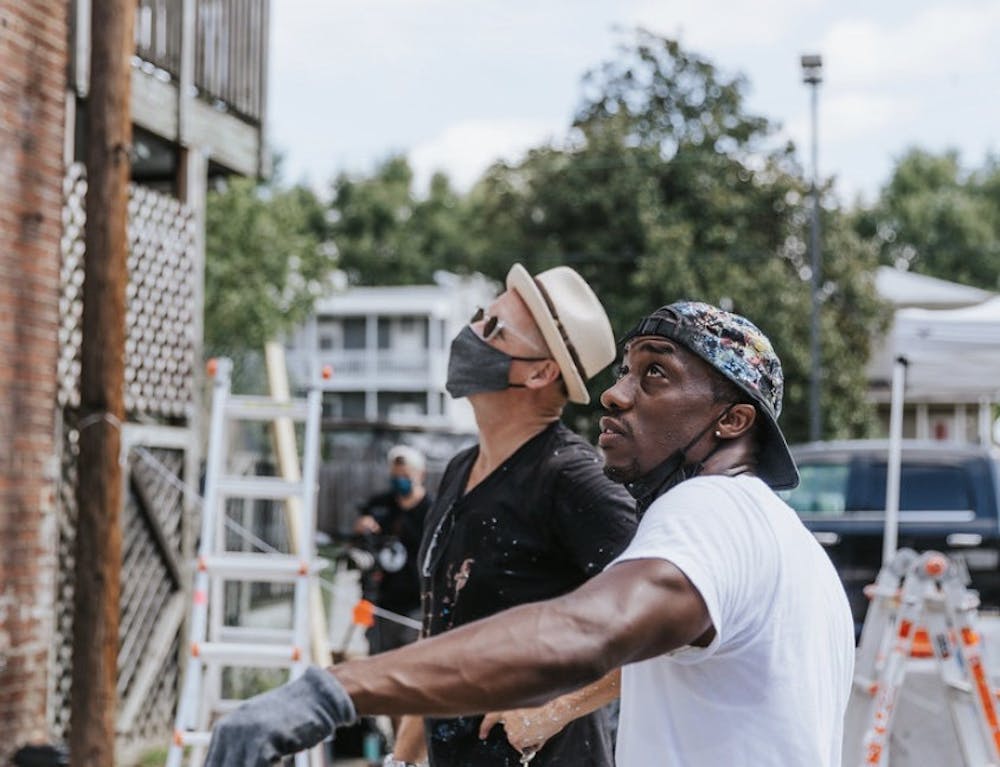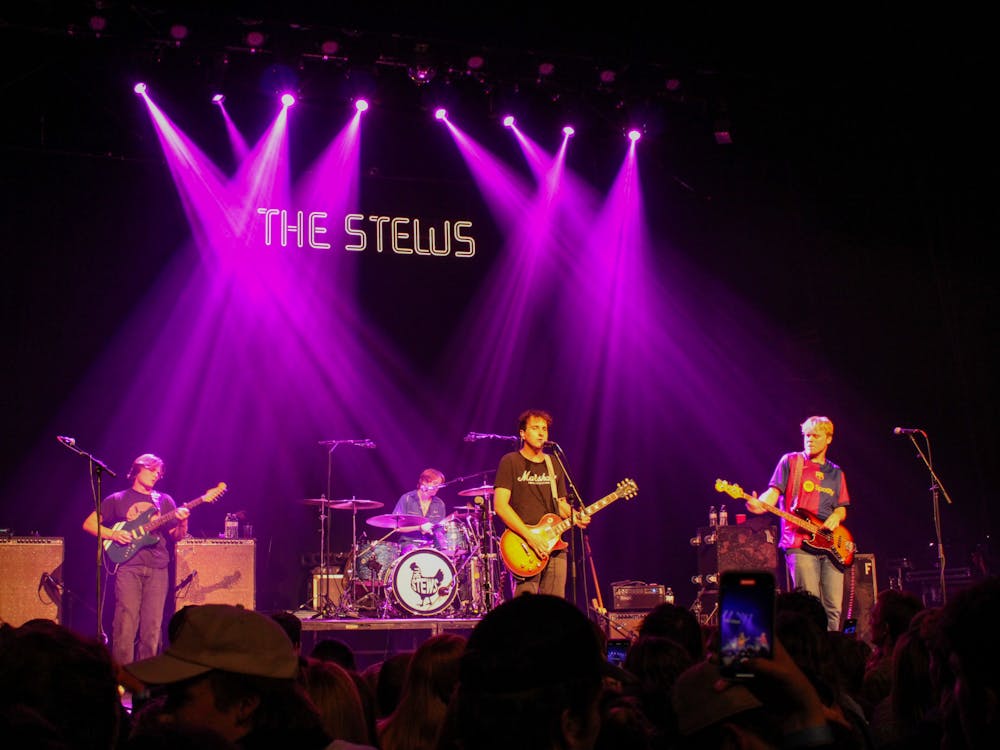Five days. Over 60 screenings. A special extension of cinema that reaches the University’s own front door. Celebrating its 34th year, the Virginia Film Festival is brought to life through the work of the countless volunteers, the University Arts Program and the help of many other sponsors. From new films to guest speakers, the festival offers a unique film watching experience to its attendees, allowing a fun night out with friends plus thought provoking discussion.
Based on the festival schedule, there are lots of movies to look forward to. One featured film already reeling in the hype is Wes Anderson’s "The French Dispatch," featuring actors Timothée Chalamet, Owen Wilson and Adrien Brody. Another is "Spencer" with acclaimed actress Kristen Stewart portraying Princess Diana. "Last Night in SoHo," "Zola" and "Dopesick" are some of the other pieces — covering a variety of topics and genres — stoking audience members’ excitement.
A captivating aspect of the festival is the Series and Sidebars feature. VAFF curates series on American Perspectives, Women in Film, Indigenous Americans in Film, a Spotlight on Virginia Filmmaking, an LGBTQIA+ Focus series, Black Excellence and Shorts Programs. Films were handpicked to be part of these categories, and each brings something new to the table.
VAFF also gathers guest speakers — industry members with a prime ability to move discussion and answer questions about their films and their processes. Their roles in the film industry range from acting in Hollywood to directing to working as a film critic for a major publication. Special guests this year include names like playwright and actor Jeremy O. Harris, Emmy-nominated actor Martha Plimpton, Emmy award-winning actor Danny Strong and William Antholis, director and CEO of the Miller Center, to name a few.
The transition from virtual to in-person is especially exciting. VAFF is coming back with a bang, says Jody Kielbasa, vice provost of the arts and director of VAFF. Though COVID-19 restrictions continue to create limitations on screening and guest speaker opportunities, Kielbasa knows that VAFF has what it takes to generate both community and nationwide interest.
“There seems to be a tremendous amount of pent up excitement and enthusiasm about being able to attend the movies in-person," Kielbasa said. "The festival is … an important bridge for the University of Virginia to the broader community. I believe that people over the years have really come to really embrace the festival as their own. They’re proud of how it represents Charlottesville, because it really is one of the largest film festivals in the Mid-Atlantic."
Kielbasa comments on the interconnectedness of VAFF in including various University programs and staff within the programming of the festival.
“[VAFF] is an opportunity for us to provide intersections across the Grounds of the University for our students and faculty," Kielbasa said. "Film is studied broadly at the University of Virginia, so we forge partnerships with the Miller Center, the Center for Politics, with various language programs and with the office of Diversity, Equity, and Inclusion."
With the assistance of genuinely passionate University faculty members, most of the films at VAFF are given a three-to-four minute introduction by said faculty members. Through these introductions, faculty members place the films in the context of their subject matter and the issues that the films address.
“What distinguishes the Virginia Film Festival from other film festivals is the intellectual and cultural firepower of our faculty and our students to be able to engage in a dialogue around these films. It’s really just an extraordinary opportunity,” Kielbasa said.
Behind the scenes, VAFF requires the flexibility, communication and productivity of a very large team. It almost seems like mayhem. Planning for VAFF is a year-long endeavor, starting in January with the Sundance Film Festival, the largest independent film festival in the U.S. Kielbasa and his program manager will attend the Sundance Film Festival and watch a variety of films awaiting release in the coming year. From there, the programmers of VAFF attend other festivals, look into other upcoming films and keep track of which films are dubbed high profile and headed towards the possibility of an Academy Award.
“We are constantly researching films that are out or screening films to be considered … We ask filmmakers to submit their films and get films from all over the world,” Kielbasa said.
All the while, VAFF is marketing to its prospective audience.
“We have television and radio sponsors and hard print media sponsors like C-Ville Weekly and The Daily Progress. There are ads that are being prepped, there are ads that are being recorded,” Kielbasa said.
Finally, from Oct. 27 to Oct. 31, VAFF opens to the public. Thousands of attendees will pack the seats of the Paramount Theatre, the Violet Crown and the Culbreth Theatre, also finding their way to the drive-in screenings at Morven Farms. For students, there is an added benefit — many tickets are free through the Arts Department.
“This is a professional film festival,” Kielbasa said. “If you are not a student at the University of Virginia and you wanted to attend, it could set you back hundreds of dollars … this is actually a really big benefit for students and one that I highly recommend. We’ve known some students that catch as many as a dozen or more films during the festival.”
However, students should only book tickets if they are actually planning on using them and shouldn’t sign up for multiple films at the same time. Respecting other students who also want to attend VAFF is integral to the success of the festival and allows others to share in the cultural experience.
Tickets are available now through the Arts Dollars Program. For more information, visit the VAFF website. Support the University Arts Department, and enjoy an incredible opportunity for the celebration of film by University students, faculty, staff, the greater Charlottesville community and the rest of the nation.





